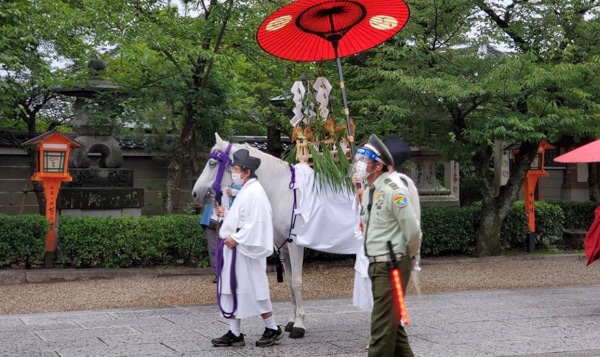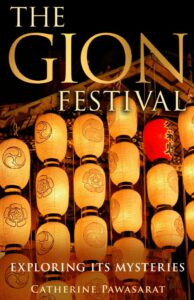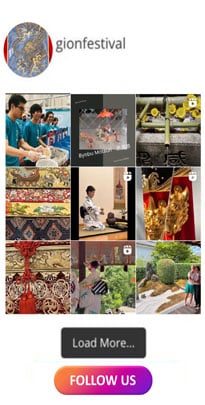Kyoto’s famous Gion Matsuri likely scaled down in 2021
Will there be a Gion Festival 2021? Gion Festival 2020 did take place, but because of coronavirus concerns it was held in a much smaller way than usual.
In 2020, none of the Gion Festival’s famous 34 yamaboko floats were constructed, and the famous processions of yamaboko and portable mikoshi shrines did not take place as usual on July 17 and July 24 did not take place. It was the first time in 58 years that the processions didn’t take place.

Gion Festival procession, 2020. Due to covid the Yasaka Shrine’s three portable mikoshi shrines were replaced with blessed sakaki leaves, and conveyed through the city in a small, quiet procession. Image courtesy Aizawa Emiko.
Instead, 2020 saw important Gion Festival Shinto purification rituals happen, with small groups of key festival members participating, wearing masks. These rituals are considered the core of the Gion Festival.
These and other rituals (such as fire rituals by Shugendo yamabushi “mountain monks”) seemed especially appropriate because the festival began in the year 869 to rid the city of epidemics. In 2020 small processions also took place, but they included only central community members, all wearing masks.
The commitment to continue with core festival activities is commendable. But for Gion Festival fans who are not a part of the festival community—especially anyone visiting from overseas—the unfortunate result is not being able to attend the annual festival’s most spectacular events.
It is an ongoing discussion within the Gion Festival community whether to hold the festival or not. “After all, its purpose is to stop epidemics,” one community member pointed out. At the same time, no one wants the festival to be a vector for increased coronavirus cases. The decision puts the Gion Festival community leadership in a painful position.
In mid-March, Kyoto’s famous 15 Aoi Matsuri festival was canceled, to lower the chances for the coronavirus to spread and to keep the population at ease. Japanese festivals are notorious for their dense crowds.
The Aoi Matsuri and Gion Matsuri festivals are two of Kyoto’s “Big Three,” together with the Jidai Matsuri. “Matsuri” means “festival” in Japanese.

Gion Festival chimaki—a kind of talisman—are an important Kyoto industry and source of festival revenue.
Last year’s decision was announced by the Gion Festival Floats Association on April 20, 2020.
Canceling the Gion Festival has a tremendous impact on the economy of Kyoto city and traditional industries. For example, each year there are strong sales in the famous Kyoto chimaki talismans, paper lanterns, and of course sales in visitors’ accommodation and dining.
The Gion Festival leadership and Kyotoites have responded creatively with innovative ways to support these industries. In 2020 they hosted special online sales of chimaki, and downtown Kyotoites created a special Gion Festival atmosphere with festival-related decorations and music.
Buy my book, “Gion Festival: Exploring Its Mysteries,” to learn more about the spectacular Gion Festival than you can anywhere else. It’s the first English-language guide to the Gion Matsuri in more than 100 years. Plus I share the latest on how the Gion Matsuri communities are cultivating social impact in the context of tradition—very cool. Free excerpt available here.
Interested in sharing this content? Check out the Creative Commons Attribution-NonCommercial-ShareAlike 4.0 International License for guidelines on how. This is a cool way to grow a culture of generosity. In Buddhism, generosity is one of the foundational practices of spiritual enlightenment. So it’s worth a try.


